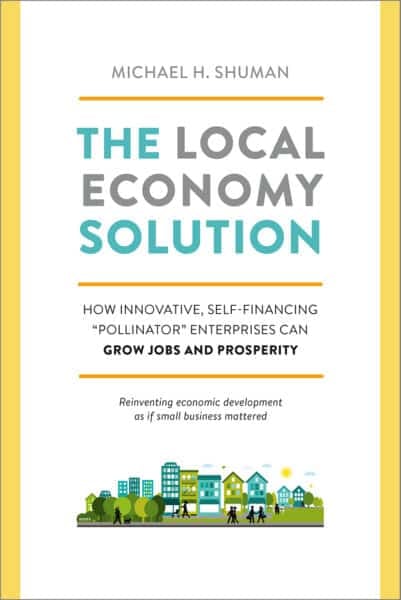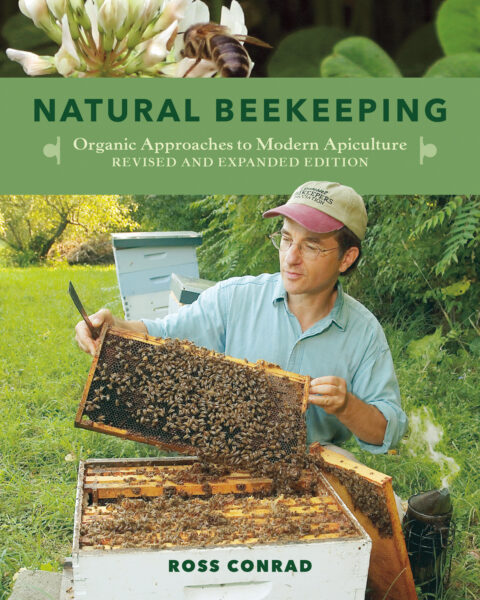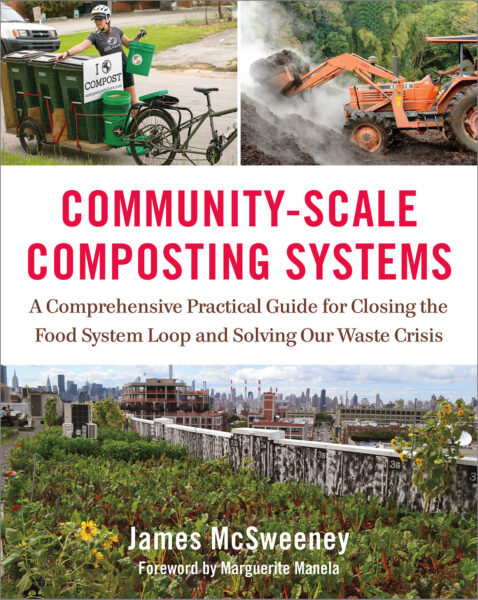The Importance of Community Values and Natural Work

The following is the foreword to Dave Pollard’s Finding the Sweet Spot: The Natural Entrepreneur’s Guide to Responsible, Sustainable, Joyful Work by Dave Smith—and entrepreneur and co-founder of Smith & Hawken. It has been adapted for the web.
During the seventies—when high unemployment and energy shortages were a daily fact of life—some friends and I started and ran a very successful natural food cooperative in Menlo Park, California, called Briarpatch Natural Foods.
It was created to fill a real community need, following the age-old business adage of “find a need and fill it.”
People had time on their hands, and natural foods were expensive, so by working eight hours every three months, members were able to purchase healthy foods for at least 30 percent less.
Three of us co-managed the store, and the work of unloading trucks, stocking shelves, buying fresh produce at the produce terminal, running the cash registers, and everything else needed to operate a small grocery store was done by members.
At one point, there were more than 350 families on the waiting list.
Because labor is, by far, the largest expense of doing business, taking most of that cost out of the expense statement created not only cheaper food but also an enormous forgiveness for the obvious inefficiencies of volunteer, untrained labor and the lack of basic business skills by its enthusiastic and smart, but woefully unskilled management.
Oh, but what fun we had playing store!
It eventually proved to be unsustainable in the long term for the simple fact that business is cyclical and when Silicon Valley exploded into runaway growth and success, no one had time to play store, and the store didn’t adapt quickly enough to the rapidly changing times that did it in.
All vendors were fully paid, all member investments were fully returned, and the graceful ending left us only fond memories.
By our current business standards, it was a failure because it didn’t grow and make its “investors” a ton of money.
For those of us most intimately involved in the daily business of running a community cooperative, it was one of our most beautiful, successful business experiences.
On the other hand, Smith & Hawken, the $100 million garden company I cofounded, is considered an enduring entrepreneurial success. I disagree, and here’s why.
Smith & Hawken’s original mission was to supply sturdy, well-made tools to very serious craftsmen (and women). We started with legendary garden tools made by a two-hundred-year-old company in England and sold them to small organic farmers and serious organic gardeners.
Because they were priced at four times the price of the poorly made, throwaway garden tools at the local hardware store, we thought there was a very limited market that would require us to work only part-time, leaving us room to do more important things.
When we tried to branch out into woodworking tools, the customer base we had built the brand name on asked us what the hell we were doing.
We told them we were a tool company and we wanted to sell other well-made tools.
They let us know that we were not a tool company, we were an organic garden company, and they were uninterested in Japanese carpentry tools.
All well and good, as our own personal values coincided with the altered company mission, and the company became a very successful garden company that listened to its customers and doubled in sales for many years, requiring typical entrepreneurial sacrifice and dedication.
But now, long after the founders have moved on to other pursuits, and the company has changed hands several times, it has been purchased by the largest home pesticide distributor in the United States, betraying the fundamental values of the brand, its founders, and many of its customers.
A brand standing for good values will now be used as a halo around a company that stands in opposition to those values. For me, that’s a failure.
You may say “big freaking deal, get on with your life” and that I have done.
But values have always been what I wanted my life to be about, and what I consider anti-values are now associated with my name. A lesson learned.
Values are also what Dave Pollard and his book, Finding the Sweet Spot, are ultimately about. As practical and groundbreaking as this book is, always lurking in the background is a question of values.
Dave not only shows us how important it is to thoroughly research the real business opportunities that need filling, and teaches us how to do it, but also asks us to explore what it is we love doing and what we’re good at as equally important to fulfill our yearnings to be useful and make the world a better place.
Yet this is not a warm and fuzzy “do-it-and-the-money-will-come” wish book.
What you’ll find here is an excellent, nonacademic, no-nonsense, down-to-earth, hands-on, “insight-full” working guidebook, led by an innovative, caring, and extremely bright man who may not know all the answers, but, much better, shows us how to go about finding them.
However you may define business success and meaning for yourself, this will become one of those books you often turn to for idea sparks and troubleshooting; a manual that stays close by after you’ve dog-eared, starred, and underlined the pages most useful to you.
It is, most importantly, a timely book.
I’m convinced that the coming changes will be a time that requires the most from each of us.
As “big-corporate” and “big-government” failures to negotiate the transition to decentralized renewable energy and sustainable living become increasingly apparent, it will be up to each of us, especially those of us involved in small community business, to step up to the responsibility of meeting real local needs.
Opportunities abound in cultural transitions, especially those that are potentially devastating if creative answers are not found and implemented.
It will be the combination of independent can-do spirit, entrepreneurial innovation, collaborative teamwork, the sense of service, and deep reverence for nature’s ways that bring us safely to a renewable standard of living.
Temperate needs, slower growth, and appropriate scale, coupled with modest returns on investment, will become the responsible means of doing business when nature becomes a partner rather than just a “resource” to exploit.
Grab Finding the Sweet Spot and a friend or two, and head to the woods for a few days of study, hiking, and brainstorming.
Explore what you are good at, what you love doing, who you love and want to work with, and then come back ready to make it happen no matter what.
If necessity,
mother of invention,
begs for creative release,
but doesn’t know how . . .
the book is here and your time is now . . .
Have at it!
Dave Smith
Recommended Reads
Recent Articles
Addressing the pressing issues affecting everyday Americans is essential—and one of our nation’s most profound challenges is the devastating impact of mass layoffs. Layoffs upend people’s lives, cause enormous stress, and lead to debilitating personal debt. The societal harm caused by mass layoffs has been known for decades. Yet, we do little to stop them.…
Read MoreIn a personal investigation into ethical and traceable leather, fashion designer Alice Robinson begins a ground-breaking journey into the origin story of leather and its connection to food and farming. Keep reading to learn more about her process of cutting & shaping leather to create handbags, shoes, clothing, and more! The following is an excerpt from…
Read MoreWe’ve all heard of the phrases “time flies” and “time heals all wounds,” but what really is time, and how does it impact our lives? The concept of time may be even more powerful than we think, especially when it comes to the money we save and spend. The following is an excerpt from The…
Read MoreVandana Shiva has been described in many ways: the “Gandhi of Grain,” “a rock star” in the battle against GMOs, and “the most powerful voice” for people of the developing world. For over four decades she been at the forefront of seed saving, seed sovereignty, and connecting the dots between the destruction of nature, the polarization…
Read MorePeople are quitting their jobs and retiring at an alarming rate all over the country. Dubbed “the great resignation,” this change in the American workforce is causing shortages and supply chain issues in many sectors, from healthcare to retail. The following is an excerpt from Scanned by Nick Corbishley. It has been adapted for the…
Read More








